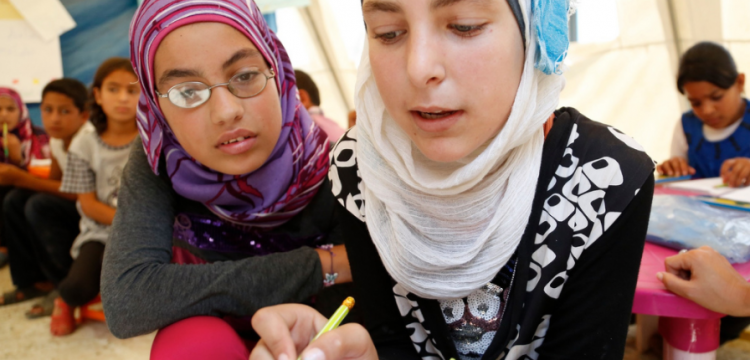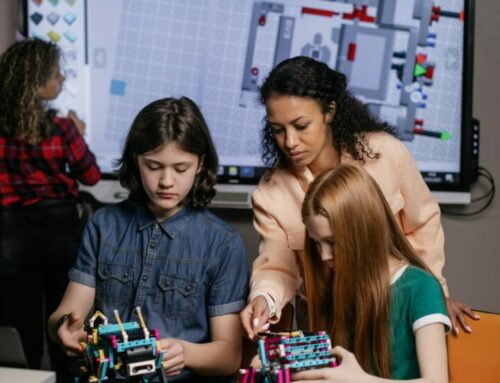Inclusive higher education must cater for refugees
Patrick Blessinger and Enakshi Sengupta
St. John’s University (NYC), USA and American University of Kurdistan
Every year on 20 June World Refugee Day is held to promote awareness of the plight of millions of refugees worldwide.
Currently, according to the UNHCR Population Statistics Database, more than 65 million people worldwide (roughly 1% of the world’s population) are displaced from their homes due to war, persecution, extreme violence, man-made disasters and similar factors. Of these displaced persons, about 20 million are classified as refugees, roughly the same number of people who were displaced worldwide as a result of World War II.
Established in 1950, the UN Refugee Agency or UNHCR has become the world’s leading agency and programme responsible for the protection of refugees worldwide. In its capacity as the voice for refugees and other displaced persons, it leads international efforts to protect the rights of refugees and to provide humanitarian assistance.
In the forthcoming book series, Refugee Education, we, along with several refugee scholars and educators, present a set of research studies in refugee education and we discuss how educational and humanitarian organisations are helping to address the refugee crisis around the world.
Definition of a refugee
According to the UNHCR, a refugee is a person who is forced to flee her or his home country in order to escape war, extreme violence, persecution and the like. The number of forcibly displaced persons, which includes refugees, has risen dramatically in the past few years. If displaced people were considered a nation, they would be the 21st largest nation in the world, eclipsing the United Kingdom, for instance.
Although half of all displaced people currently come from just three countries (Syria, Afghanistan and Somalia), the responsibility for this growing crisis is, nonetheless, a global one, requiring nations and organisations, including educational institutions at all levels, to work together to address the growing problem. The refugee crisis will not go away on its own. The problem will presumably continue to worsen if not addressed in a globally collaborative way.
Filippo Grandi, UN High Commissioner for Refugees, put it this way: “The willingness of nations to work together not just for refugees but for the collective human interest is what’s being tested today, and it’s this spirit of unity that badly needs to prevail.”
Although universal education at all levels is a human right, access to education is still not guaranteed in some nations, especially for displaced and migrant children.
Refugees, because of language and other barriers, face a particularly difficult challenge in attaining even a basic education. According to UNHCR statistics, only about half of all refugee children attend primary school and just a quarter attend secondary school and only about 1% access higher education.
More research needed on refugees
To help respond to the growing refugee crisis, the International Higher Education Teaching and Learning Association or HETL, in consultative status with the United Nations Economic and Social Council, has launched a research project to study international collaborations, strategies, programmes and policies related to the global refugee crisis.
Specifically, HETL is collaborating with refugee research scholars worldwide to create three volumes of research in the following areas related to refugee education:
- Integration and acceptance of refugees in mainstream society;
- Strategies, policies and directions; and
- Language teaching and pedagogy.
This research will examine how educational institutions, NGOs and other organisations are helping to address the growing refugee crisis.
This HETL research will add to the growing knowledge base on refugee education (for instance, research by the International Institute for Educational Planning). More specifically, this HETL research will examine different theoretical frameworks and models being used in refugee education as well as the progress made and the challenges encountered in refugee education.
In an era where the world is increasingly impacted by political instability, xenophobia, racism, religious and ethnic persecution, genocide and other threats to democracy and human rights, education, civic and other leaders must address a growing set of complex political, economic, social and ecological challenges.
Key issues related to refugees
The refugee crisis involves many overlapping issues dealing with justice, equity, rights, power, identity and pluralism, among others. Within the context of these intertwined complex issues, the UN has reached agreement (The New York Declaration for Refugees and Migrants) on several commitments that member states should pledge to adhere to.
Given the centrality of teaching and learning to all educational institutions worldwide, efforts to make educational environments increasingly inclusive to all is one of the top human rights issues of our time. These inclusivity and diversity issues were recently discussed at the University of the West of Scotland HETL Conference in Scotland.
To achieve a more inclusive global knowledge society in an increasingly globalised world, lifelong learning must be treated as a human right, higher education must continue to be democratised and higher education institutions must continue to create more inclusive institutional cultures.
Furthermore, the UNICEF report, A Human Rights-Based Approach to Education for All, states that one of the obligations of governments is to ensure the right of access to education by providing “…protection and assistance to ensure respect for the rights of children who are refugees or seeking asylum”. Thus, the refugee crisis is especially problematic since children constitute more than half of the world’s refugees.
Steps in the right direction
The UNHCR awards scholarships to refugees through a programme known as the Albert Einstein German Academic Refugee Initiative or DAFI. This programme has enabled more than 2,000 refugee students to continue their higher education studies. In addition, the European University Association Refugees Welcome Map is a set of guidelines that helps universities provide assistance in integrating refugee students into higher education.
Higher education institutions can and should do more to help refugee students through scholarships and other forms of assistance. In a study on the financial cost of refugee higher education at Columbia Business School, student researchers initiated a programme called the Columbia Scholarship Program for Displaced Persons.
Finally, the Institute of International Education Syria Consortium for Higher Education in Crisis is a consortium of 60 higher education institutions worldwide which provide scholarships for displaced Syrian students. These programmes provide concrete exemplars of the role higher education is playing in helping to address the refugee crisis.
Patrick Blessinger is an adjunct associate professor of education at St John’s University, New York City, USA, and chief research scientist for the International Higher Education Teaching and Learning Association. Enakshi Sengupta is dean of the College of Business at the American University of Kurdistan.
Note: this article also appears in the University World News blog at http://www.universityworldnews.com/article.php?story=20170823063722674
Suggested Citation:
Blessinger, P. & Sengupta, E. (2017). Inclusive higher education must cater for refugees, Higher Education Tomorrow, Volume 4, Article 7, https://www.patrickblessinger.com/inclusive-higher-education-must-cater-for-refugees
Or
Blessinger, P. & Sengupta, E. (2017). Inclusive higher education must cater for refugees, University World News, http://www.universityworldnews.com/article.php?story=20170823063722674
Copyright © [2017] Patrick Blessinger and Enakshi Sengupta
Disclaimer
Opinions expressed in this article are those of the author, and as such do not necessarily represent the position(s) of other professionals or any institution.




